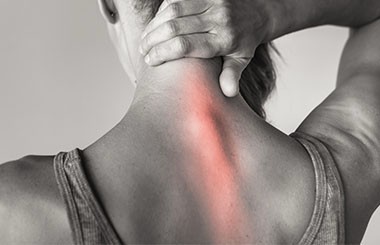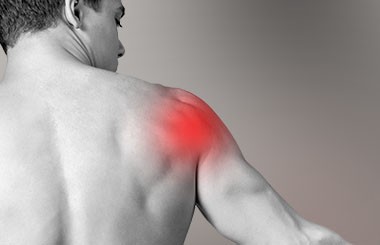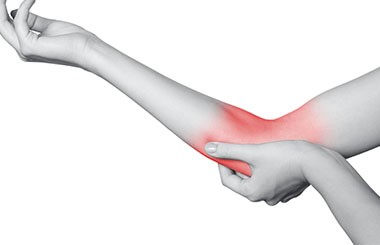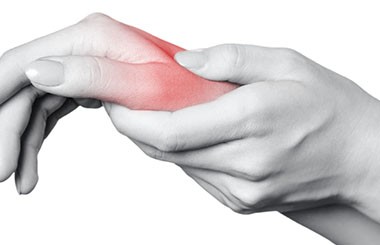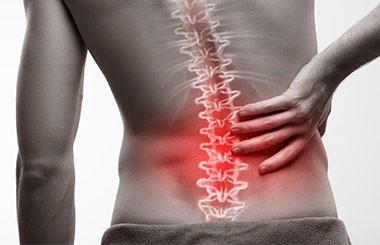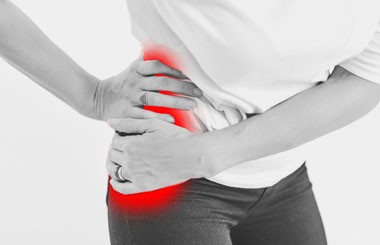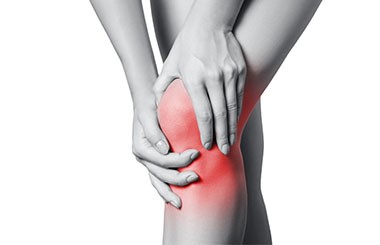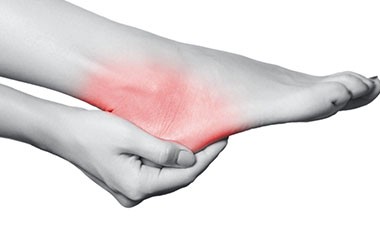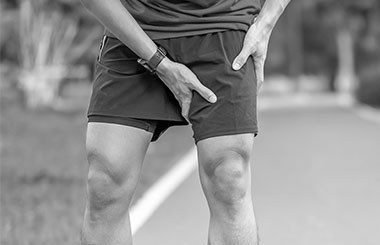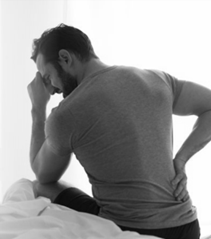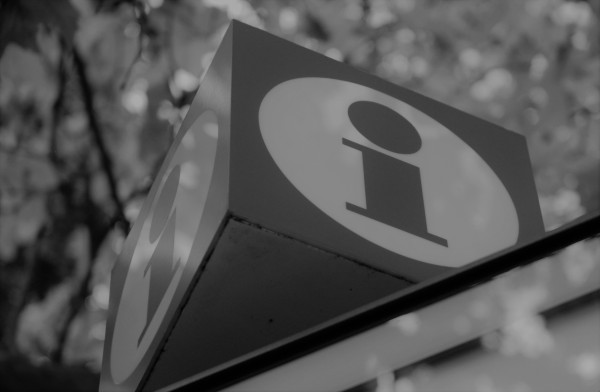Arthritis
A common condition that causes pain and swelling within the joints.
Bursa
A fluid filled sac that sits within the body to stop things rubbing together.
Cartilage
A tough but flexible tissue found throughout the body. It covers the surface of joints, acting as a both shock absorber and allows bones to slide over one another. Cartilage is the medical term for the type of tissue and will often have a specific name depending on what joint it is in such as meniscus (knee) or Labrum (hip & shoulder).
Core stability
The core is the foundation of the body and acts to create a stable base for the arms and legs to move. The group of muscles that make up the core include all of the muscles on the front, the sides, and the back of the body from the upper back down to the hips. Yoga and Pilates exercises are often used to strengthen the core muscles.
Crepitus
Is grating, crackling or popping sounds and sensations heard or felt under the skin and joints. It is a normal sensation and does not cause any damage to joints and on its own, does not require any treatment.
Deep vein thrombosis (DVT)
Also known as a venous thrombosis, is a blood clot that develops within a deep vein in the body, most commonly seen in the calf. If you have a DVT the area will be painful with symptoms increasing on activity, hard and painful to touch and appear red and swollen. A DVT is a medial emergency and requires professional attention. If you suspect you have a DVT please contact your GP as soon as possible.
Discs
The term 'disc' is short for 'intervertebral disc'. Discs are spongy tissues that separate the bones of the spine (vertebrae). Discs provide shock absorption, keep the spine stable and create space between the vertebras to allow movement.
Fascia
A thin casing of tissue that surrounds and holds every organ, blood vessel, bone, nerve fibre and muscle in place. The fascia has nerves that make it almost as sensitive as skin.
First Contact Practitioner (FCP)
An FCP is a registered health professional who is the first point of contact for patients, with specific expertise within an area (such as a physiotherapist) providing increased capacity to general practice and early expert knowledge or intervention.
Giving Way
A person falls to the floor due to a sudden and unexpected loss of support from a joint in the legs.
Health Care Professional (HCP)
A qualified professional involved in medical care. This includes; Doctors, nurses, physiotherapists, podiatrists, pharmacists, psychologists and many more.
Inflammation
Is a natural, necessary process and part of the body's healing. Inflammation can be either short lived (acute) or long lasting (chronic). When inflammation is chronic your health care professional may advise treatments to help reduce this.
Ligaments
Ligaments are soft tissues that connect bone to bone stabilising a joint.
Locking
A person is unable to move a joint, meaning it gets stuck in that position for a period of time. Locking is very different to clicking, cracking, grinding and popping of joints (see Crepitus).
Magnetic Resonance Imaging (MRI)
A more detailed image of the internal structures of the body, such as bones, ligaments, and tendons.
Muscle wastage
When the muscles reduce in size and shape.
Nausea
A feeling of sickness, however you may not actually be sick.
Nerves
Are like electrical cables that carry messages between your brain and the rest of your body. These messages help you feel sensations and move muscles. They also maintain certain body functions like breathing, urinating, sweating, swallowing or digesting food.
Osteoarthritis
Osteoarthritis is a natural degenerative process where the cartilage that spaces a joint start to change and over time thin, meaning the bones gets closer together, and can occur in any joint in the body. Osteoarthritis does not 'spread'; just because it is in one joint does not guarantee it will occur in others. The process can cause the joints to feel painful, stiff and inflamed. When having an x-ray or MRI scan the level of cartilage loss is measured and then described as mild, moderate or severe. However this does not always match to the pain being experienced, and mild changes can cause severe pain or severe changes can cause mild pain.
Osteoporosis
A condition that over time thins or weakens the bones. If left untreated or undiagnosed, bones can become more fragile leading them to fracture (break) easily. This is most common in the bones of the hip, spine, and wrist. There are many factors that increase your risk of having osteoporosis such as known medical conditions, drug history, family history, general health, gender and age. Diagnosis for osteoporosis considers the above factors and is often confirmed via blood tests and a form of scanning known as a bone density scan (DEXA).
Radiculopathy
Commonly known as a pinched, trapped or irritated nerve root (where the nerve leaves the spine). This condition can affect anyone and cause the nerve to feel painful, numb or tingly. These symptoms are felt along the nerve meaning symptoms will not only be felt in the spine but in other areas of the body. For example a nerve irritated in the neck can affect the arm and a nerve irritated in the lower back can affect the leg.
Referred leg pain
Back pain that travels to the leg is not always because of a trapped nerve. It may be caused by other tissues in the low back such as muscles, joints, ligaments. That type of pain is called referred leg pain, it is rarely felt below the knee, and normally it is not as troublesome as the back pain.
Rupture
The term rupture refers to when a soft tissue has torn to an extent where it has separated into two non connected tissues both causing pain and more importantly the tissue is no longer able to perform its job.
Sciatica
Sciatica is the name often used to describe pain that travels down the leg from the lower back or buttock. It is also called nerve root pain or radicular pain. Tingling and/or numbness in the leg can often be felt and sometimes some weakness too. This is due to irritation or pressure on the spinal nerve roots in the lower lumbar spine. In most cases sciatica is caused by a bulging disc pressing on the nerve. Discs are designed to bulge so we can move our spines about easily, but sometimes a bulge can ‘catch’ a nerve root and cause pain that travels all the way down the leg and sometimes the foot.
The pain can vary from mild to severe and for most people the leg pain is normally worse than the back pain. Some people with sciatica might have little or no back pain at all.
Soft tissue
Refers to tissues within the body such as muscles, ligaments tendons, cartilage and bursa's, not your bones.
Spinal stenosis
Sometimes back pain is linked with pain in the legs which starts after walking for a few minutes, and then tends to get better very quickly with sitting down. This is known as spinal stenosis. Some people also experience numbness, heaviness and weakness in the legs. Symptoms often affect both legs, but one may be worse than the other. Like sciatica, the main problem tends to be leg pain more than the back pain.
Problems are caused when something presses on the small space in the middle of the spine, where the nerves are. This space, which is called the spinal canal or nerve root canal, can be tight and squeezed by bone or ligament.
Tear
Medically a tear is when a ligament, tendon or muscle suffers structural damage causing part of the tissue to open while the rest of the tissue stays intact. Often tears are explained in both their direction through the tissue (vertical or horizontal) and how far through the tissue (partial can only be seen on Ultrasound or MRI on one side, and full can be seen both sides). It’s important to note a tear is not a rupture.
Tendinopathy
A term used to describe when pain, possible swelling, and reduced function is felt within a tendon affecting their ability to tolerate load. Within this umbrella term tendonitis, tendinosis and tendon tears are included.
Tendinosis
Indicates actual change in the tendons structure through long term degeneration and poor healing patterns.
Tendonitis
Is when a tendon swells (becomes inflamed). It can cause joint pain, stiffness, and affect how a tendon moves.
Tendons
Are soft tissues that connect muscles to bones. When a muscle shortens (contracts) it pulls on the tendon which in turn moves the bone it's attached to creating movement.
Tissue
The use of the word tissue in medicine refers to anything that connects, moves, separates or links areas together such as tendons, ligaments, facia, discs and muscles.
Ultrasound Scan (USS)
A detailed look at soft tissues, that can be done while moving.
X-ray
An image that can be used to look at the condition of your bones and joints.
